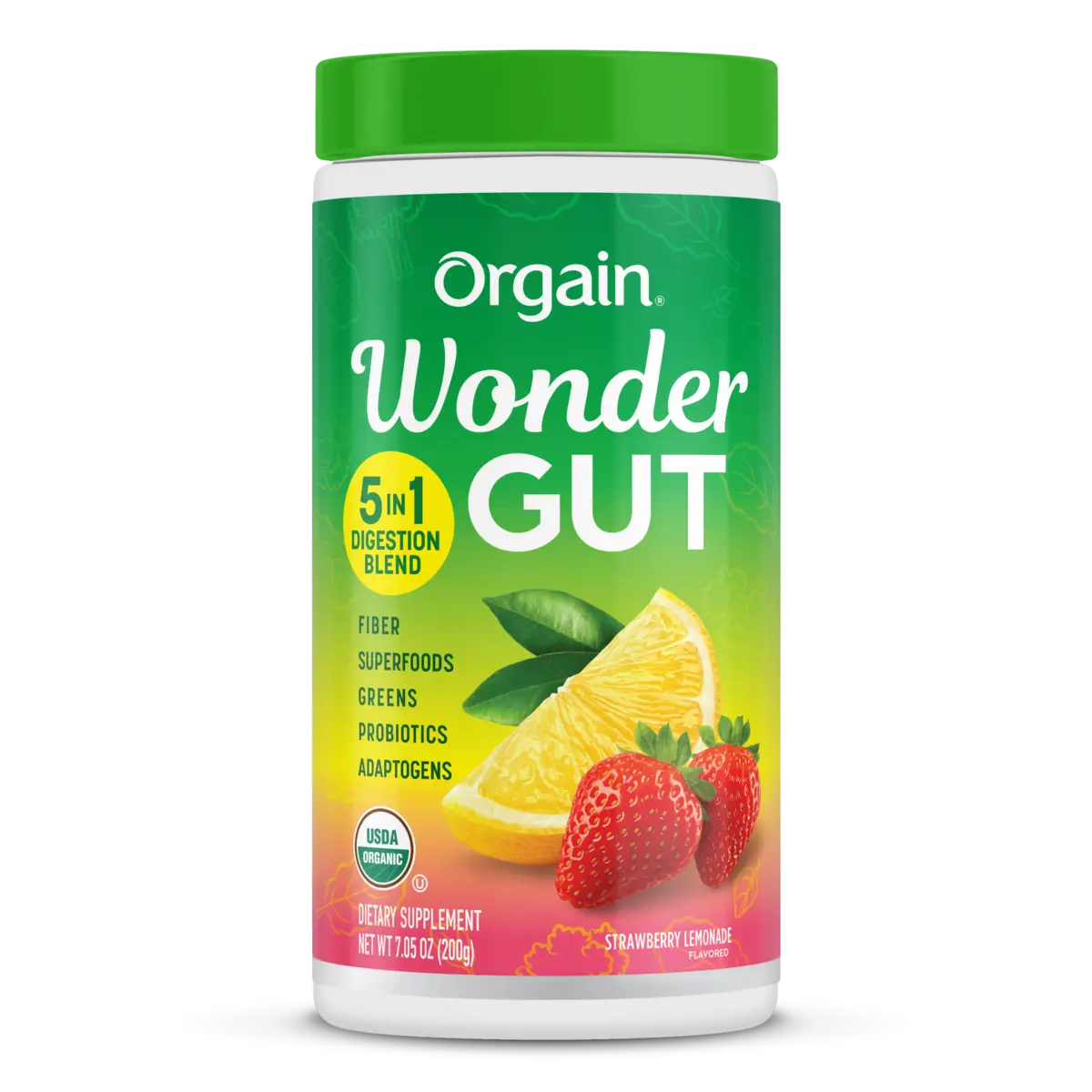Improve Digestion and Overall Health with a Quality Gut Health Supplement
Improve Digestion and Overall Health with a Quality Gut Health Supplement
Blog Article
Discover the Secret to Food Digestion and Immunity With Gut Health Support

Understanding Digestive Tract Health And Wellness
Recognizing gut wellness is vital for overall wellness, as it plays a significant function in food digestion, immunity, and even psychological health. The digestive tract, consisting of the gastrointestinal tract, is accountable for breaking down food, taking in nutrients, and eliminating waste. A balanced digestive tract setting ensures effective food digestion, permitting the body to utilize nutrients successfully.
In addition, gut health substantially influences the body immune system. The gut houses a considerable part of the body's immune cells, and a healthy and balanced intestine can help ward off virus and lower swelling. Disruptions in gut health and wellness can cause an over active immune action, possibly adding to autoimmune problems and allergic reactions.
In addition, the gut is frequently referred to as the "second brain" due to the gut-brain axis, a complex communication network linking the mind and the intestine. This link affects state of mind, cognition, and psychological wellness. Problems such as dysbiosis, defined by a discrepancy in gut bacteria, have been related to psychological wellness problems, including anxiety and depression.
The Intestine Microbiome Explained

The intestine microbiome, a varied community of microorganisms staying in the intestinal tract, plays a pivotal duty in preserving gastrointestinal health and total wellness. Comprising trillions of microorganisms, viruses, fungi, and various other microorganisms, this facility environment aids in the food digestion of food, the synthesis of necessary nutrients, and the policy of metabolic procedures.
Each person's digestive tract microbiome is distinct, affected by aspects such as diet, lifestyle, genes, and environmental direct exposures. A well balanced microbiome supports ideal food digestion by damaging down facility carbs, producing short-chain fats, and helping with the absorption of nutrients. Conversely, an inequality, typically referred to as dysbiosis, can cause digestive problems, including cranky digestive tract syndrome (IBS) and inflammatory digestive tract disease (IBD)
Research study has actually demonstrated that a varied microbiome is related to much better wellness outcomes, highlighting the relevance of dietary options in supporting these microorganisms. Foods rich in fiber, probiotics, and prebiotics, such as fruits, veggies, and fermented items, can promote a healthy microbiome. Recognizing the gut microbiome is necessary for creating targeted interventions aimed at enhancing digestive system health and stopping stomach conditions.

Link Between Digestion and Resistance
A robust link exists between digestion and resistance, highlighting the essential duty of the gut in keeping overall health and wellness. The stomach tract is home to trillions of microbes that form the digestive tract microbiome, which significantly influences both digestive system processes and immune actions. This facility community aids in damaging down food, soaking up nutrients, and offering necessary metabolites that sustain immune function.
When digestion is effective, the intestine obstacle remains intact, stopping unsafe pathogens from entering the bloodstream (gut health supplement). On the other hand, inadequate food digestion can lead to an imbalance in the microbiome, leading to dysbiosis, which has been linked to different wellness concerns, consisting of inflammatory disorders and autoimmune diseases. Roughly 70% of the immune system lives in the gut-associated lymphoid cells (GALT), which interacts carefully with the digestive tract microbiome. This interplay guarantees that the immune system can efficiently compare useful and damaging compounds.
Tips for Sustaining Gut Wellness
Supporting intestine health and wellness is vital for keeping both gastrointestinal performance and a well-functioning immune system. To foster ideal gut health and wellness, consider integrating several functional strategies right into your daily routine.
First, focus on hydration. Drinking appropriate water supports digestion and aids maintain the mucosal cellular lining of the intestinal tracts. Additionally, normal exercise can improve intestine motility and promote a varied microbiome.
Conscious eating practices are additionally essential. Chewing food extensively and eating slowly can help food digestion and Extra resources prevent overindulging, which might emphasize the gut. Taking care of stress through methods such as meditation, yoga exercise, or deep-breathing workouts can favorably affect intestine wellness, as stress and anxiety is known to disrupt gastrointestinal procedures.
Incorporating prebiotics and probiotics into your regimen is another effective approach. While particular foods will be gone over later on, recognizing the relevance of these components is important. Prebiotics function as food for helpful intestine microorganisms, while probiotics present online useful organisms.
Finally, avoid excessive usage of anti-biotics, as they can interfere with the equilibrium of digestive tract flora. By following these tips, you can dramatically add to the upkeep of a healthy gut, which is essential for total health and wellness and vitality.
Foods That Promote Gut Health

Fermented foods, such as yogurt, kimchi, sauerkraut, and kefir, are rich in probiotics, which are advantageous bacteria that support intestine plants and enhance digestion. These foods can aid recover balance in the gut, particularly after antibiotic usage or digestion disturbances.
In addition to fermented alternatives, prebiotic foods, such as garlic, onions, asparagus, and bananas, function as nutrition for these probiotics, promoting their development and activity. These soluble fibers sustain digestive tract motility and can alleviate concerns like irregular bowel movements.
Furthermore, incorporating high-fiber foods, consisting of entire grains, legumes, fruits, and veggies, is important for keeping a healthy intestine. Fiber aids in regular digestive tract movements and assists prevent digestive system disorders.
Last but not least, omega-3 fatty acids located in fatty fish, flaxseeds, and walnuts have anti-inflammatory residential properties that can further sustain gut health and wellness. Stressing these foods in your diet plan can bring about a robust gastrointestinal system and enhanced immune function.
Verdict
To conclude, focusing on intestine health is necessary for optimizing digestion and boosting immunity. A balanced digestive tract microbiome, affected by dietary options and way of living factors, plays an important duty in nutrient absorption Learn More and swelling reduction. Integrating fermented foods, prebiotics, and high-fiber alternatives, along with proper hydration and tension monitoring, can dramatically promote digestive tract wellness. By embracing these methods, people can support overall health and wellness and vigor, opening the possible advantages of a well-functioning gastrointestinal system.
Understanding gut health is essential for general wellness, as it plays a considerable role in digestion, immunity, and also psychological health and wellness. The digestive tract houses a considerable part of the body's immune cells, and a healthy gut can help fend off virus and lower swelling.Furthermore, the gut is often referred to as the "2nd mind" due to the Get the facts gut-brain axis, a complicated communication network linking the brain and the gut.A durable link exists between food digestion and resistance, highlighting the important role of the gut in keeping general health.In verdict, prioritizing gut wellness is necessary for enhancing food digestion and improving immunity.
Report this page